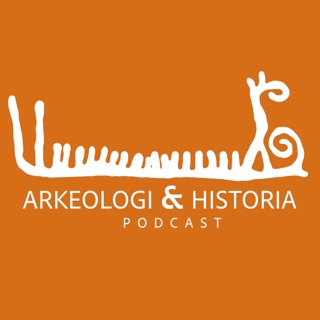
31. Amy Alkon — Unf*ckology: A Field Guide to Living with Guts and Confidence
In this unique conversation Michael Shermer talks with the science writer and weekly advice columnist Amy Alkon about her new book, Unf*ckology: A Field Guide to Living with Guts and Confidence. She calls her book a “science-help” book, instead of “self-help” because she grounds her recommendations in solid science. Her hilarious anecdotes are there just to illustrate a scientific point. She also debunks widely-accepted but scientifically unsupported notions about self-esteem, shame, willpower, and more and demonstrates that: Thinking your way into changing (as so many therapists and self-help books advise) is the most inefficient way to go about it. The mind is bigger than the brain, meaning that your body and your behavior are your gym for turning yourself into the new, confident you. Fear is not just the problem; it’s also the solution. By targeting your fears with behavior, you make changes in your brain that reshape your habitual ways of behaving and the emotions that go with them. Shermer and Alkon also get into the #metoo movement, evolutionary psychology, politics, depression, suicide, Jordan Peterson, and other fascinating topics. This remote Science Salon was recorded on July 5, 2018.
31 Juli 20181h 36min

30. Dr. Ralph Lewis — Finding Meaning in a Meaningless Universe
In this wide-ranging conversation Michael Shermer talks with the author of the new book Finding Purpose in a Godless World: Why We Care Even if the Universe Doesn’t, Dr. Ralph Lewis. Dr. Lewis is a psychiatrist at the University of Toronto who works with cancer patients and others facing death. They often face existential crises, so Dr. Lewis—himself an atheist—has developed techniques to help people cope that do not depend on any one religion. His new book is about how human purpose and caring, like consciousness and absolutely everything else in existence, could plausibly have emerged and evolved unguided, bottom-up, in a spontaneous universe. He and Shermer discuss how a random world is too often misconstrued as nihilistic, demotivating, or devoid of morality and meaning. Drawing on years of wide-ranging, intensive clinical experience as a psychiatrist, and his own family experience with cancer, Dr. Lewis helps listeners understand how people cope with random adversity without relying on supernatural belief. In fact, as he explains, although coming to terms with randomness is often frightening, it can be liberating and empowering too. This remote Science Salon was recorded on July 2, 2018.
25 Juli 20181h 23min

29. Colin McGinn — Mysterianism, Consciousness, Free Will, and God
This podcast was initiated after McGinn commented publicly, and critically, on Shermer’s latest Scientific American column on the mysteries of consciousness, free will, and God. The philosopher Justin Weinberg at the University of South Carolina, who runs the DailyNous website (@DailyNousEditor on Twitter) posted a dozen tweets admonishing Shermer and Scientific American for publishing such a mischaracterization of several philosophical subjects, even referencing the film Annie Hall, where Woody Allen’s character is irritated in a movie line by some bloviator yammering on about Marshall McLuhan, reaches behind a big movie poster and pulls McLuhan out of line, who then upbraiding the blowhard “I heard what you were saying! You know nothing of my work! You mean my whole fallacy is wrong. How you got to teach a course in anything is totally amazing!” To which Woody says, “Boy, if life were only like this.” Well, life can be like this, but in this case Shermer invited McGinn on the show to discuss the topics in detail in order for everyone to glean a deeper understanding. A fruitful conversation ensued on these and other important topics.
16 Juli 20181h 41min

AMA-1. Dr. Michael Shermer — Ask Me Anything!
In this first Ask Me Anything (AMA) Dr. Shermer attempts to answer as many questions as possible in a reasonable time among the hundreds submitted by readers. There were so many good ones, in fact, that he will produce a second AMA on these, as well as new ones submitted when we put out a call shortly. In AMA # 1 the questions are roughly grouped in the following categories: Science and Skepticism God, Jesus, and Religion Free Will Jordan Peterson Human Nature Future of Humanity Miscellaneous Read a list of the questions answered in this AMA: https://www.skeptic.com/science-salon/ama001/
9 Juli 20181h 1min

28. Edward J. Larson — On Faith and Science
Throughout history, scientific discovery has clashed with religious dogma, creating conflict, controversy, and sometimes violent dispute. In this enlightening and accessible volume, distinguished historian and Pulitzer Prize-winning author Edward Larson and Michael Ruse, philosopher of science and Gifford Lecturer, offer their distinctive viewpoints on the sometimes contentious relationship between science and religion. The authors explore how scientists, philosophers, and theologians through time and today approach vitally important topics, including cosmology, geology, evolution, genetics, neurobiology, gender, and the environment. Broaching their subjects from both historical and philosophical perspectives, Larson and Ruse avoid rancor and polemic as they address many of the core issues currently under debate by the adherents of science and the advocates of faith, shedding light on the richly diverse field of ideas at the crossroads where science meets spiritual belief. In addition to these topics, Dr. Shermer and Dr. Larson discuss: the Scopes Monkey trial and how legal complications shaped its outcome, along with that of other creationism-evolution trials; what Darwin believed about God and religion; why biblical literalism took off in America in the 1960s and 1970s leading to creationist movements to rewrite science textbooks; what really happened in the Galileo trial; how so many prominent scientists throughout history believed in God but did not actually use their science to prove God’s providence; why atheism became so prominent in the early 21st century but not before, even though atheist arguments against God’s existence have been around for centuries; Gould and Dawkins and different approaches to science and religion; the rise of the nones and the decline of religion in the West (but it’s increase in other areas); the limits of human knowledge.
2 Juli 20181h 30min

27. Charles S. Cockell — The Equations of Life: How Physics Shapes Evolution
We are all familiar with the popular idea of strange alien life wildly different from life on earth inhabiting other planets. Maybe it’s made of silicon! Maybe it has wheels! Or maybe it doesn’t. In The Equations of Life, astrobiologist Charles S. Cockell makes the forceful argument that the laws of physics narrowly constrain how life can evolve, making evolution’s outcomes predictable. If we were to find on a distant planet something very much like a lady bug eating something like an aphid, we shouldn’t be surprised. The forms of life are guided by a limited set of rules, and as a result, there is a narrow set of solutions to the challenges of existence. In addition to these topics, Dr. Shermer and Dr. Cockell discuss: the origins of life on earth; the possibility of finding life on Mars and, if we did, would it have something like DNA, albeit with different base pairs?; Fermi’s paradox: if the laws of physics and evolution are so common throughout the universe, and there are so many earth-like planets in our galaxy alone (estimated to be in the billions), where is everyone?; humanity becoming an interplanetary species (possibly the first), and if so what type of governing system we should employ for, say, the first colonies on Mars.
25 Juni 20181h 27min

26. Dr. Stephen T. Asma — Why We Need Religion
In this dialogue Dr. Michael Shermer talks with philosopher Stephen T. Asma, a Professor of Philosophy and Founding Fellow of the Research Group in Mind, Science, and Culture at Columbia College, Chicago. His new book is Why We Need Religion, in which he argues that, like art, religion has direct access to our emotional lives in ways that science does not. Yes, science can give us emotional feelings of wonder and the sublime—we can feel the sacred depths of nature—but there are many forms of human suffering and vulnerability that are beyond the reach of help from science. Different emotional stresses require different kinds of rescue. Unlike secular authors who praise religion’s ethical and civilizing function, Asma argues that its core value lies in its emotionally therapeutic power. Asma and Shermer also discuss the relationship of science and religion, why people believe in God, atheism vs. agnosticism, the “new atheists”, humanism and the need for social and spiritual community, and other hot topics.
22 Juni 20181h 22min

25. Richard Rhodes — Energy: A Human History
This is one of the best dialogues Dr. Shermer has ever had in his quarter century of talking to the leading scientists and scholars of our time. Listen in as he and Pulitzer Prize- and National Book Award-winning author Richard Rhodes discuss nuclear weapons, North Korea, Iran, and Russia, the psychology of Mutual Assured Destruction (MAD), human violence and its causes, the “Bullet Holocaust” (the millions of Jews and others shot to death in Eastern Europe before the death camps ramped up their killing by gas), how people become serial killers (the socialization of violence), and his new book Energy: A Human History, which reveals the fascinating history behind energy transitions over time—wood to coal to oil to electricity and beyond. People have lived and died, businesses have prospered and failed, and nations have risen to world power and declined, all over energy challenges. Ultimately, the history of these challenges tells the story of humanity itself. In Energy, Rhodes highlights the successes and failures that led to each breakthrough in energy production; from animal and waterpower to the steam engine, from internal-combustion to the electric motor. He addresses how we learned from such challenges, mastered their transitions, and capitalized on their opportunities. Rhodes also looks at the current energy landscape, with a focus on how wind energy is competing for dominance with cast supplies of coal and natural gas. He also addresses the specter of global warming, and a population hurtling towards ten billion by 2100.
29 Maj 20181h 19min




















